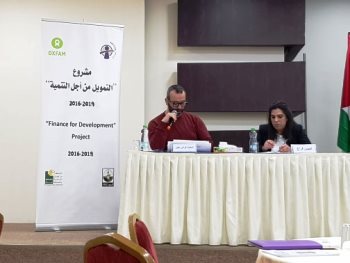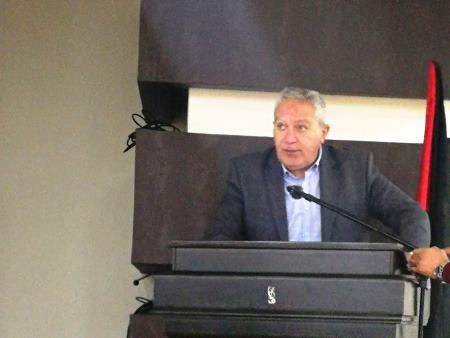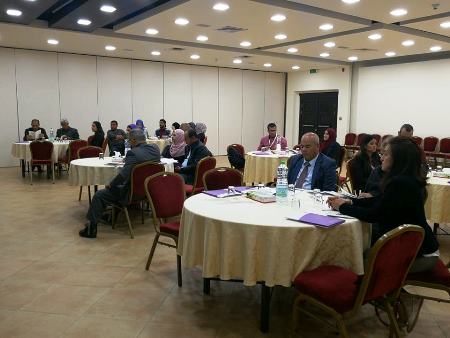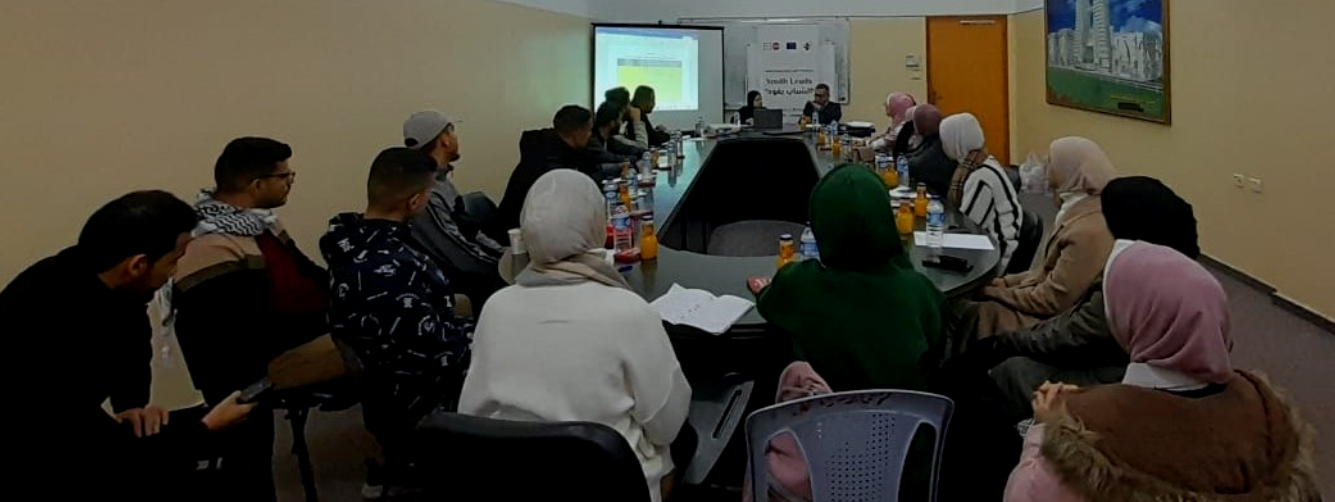
On April 10, MIFTAH launched its 2018 Fair Tax Monitor report, aimed at providing the public and civil society institutions with qualitative and quantitative analysis and an overall view of the Palestinian tax system. The report presents several outcomes and recommendations for decision-makers in cooperation with parties involved in formulating fiscal policies, alternatives and draft amendments that respond to the aspirations of citizens and adopt a participatory approach in developing tax policies through promoting the values of social justice.
Mr. Yousef Dajani, member of MIFTAH’s Board of Directors, opened the workshop, reaffirming MIFTAH’s aspirations along with its local and international partners, to lead a productive dialogue aimed at developing fiscal and economic policies that respond to the needs and aspirations of citizens, especially marginalized sectors. This, he said, corresponded with the organization’s strategic goal of promoting good governance in Palestine and adopting democratic values and practices in the management of public affairs and adopting government policies that promote value of openness with the public and citizens. He said this requires real and practical application of the report’s results and recommendations alongside other analytical reports and studies on the fiscal and tax policies in Palestine, published throughout 2018.

Dajani added, “We must adopt more in-depth thinking and develop effective strategies to confront challenges through pro-poor fiscal policies that are more responsive to the people’s needs; this is by considering the causes and factors that would enable Palestinian citizens to remain steadfast. We must also take into consideration the socioeconomic circumstances under which members of Palestinian society live and transform these challenges into opportunities to promote concerted efforts in expanding the circle of dialogue between official institutions and the relevant parties in addition to looking for solutions and reform recommendations that advance socio-economic policies.” The first session began with a presentation of the FTM report’s results and recommendations by researcher Firas Jaber, which concluded with a recommendation to restructure tax policies and focus on direct income tax revenuesas the ‘wealth tax” instead of depending on indirect (consumption) taxes. He focused on the importance of adopting a progressive fiscal policy through increasing the number of tax brackets to raise the level of social equity. The socioeconomic goals of tax policies such as education, health and social protection must also be taken into consideration, he maintained.
Furthermore, researcher Luay Rajab showcased the results and recommendations of a specialized report on tax burden from the perspective of social justice. The report stressed on the need to address the wide gap in the distribution of the tax burden among the various social sectors and set policies capable of taking the socioeconomic conditions of taxpayers into consideration. It also called for addressing the inflated rates of tax evasion in addition to reviewing all tax policies and transactions controlled by Israel.
MIFTAH project coordinator Hassan Mahareeq said the launching of this report is in line with MIFTAH’s strategic approaches, represented in its efforts to lobby and advocate for social justice and equality in the development of public policies and to promote good governance in Palestine. He said this was the first report of its kind in Palestine and the ninth at the global level, adding that its methodology was designed in consultation with a group of international experts specialized in fair taxation.
In this regard, MIFTAH hopes to develop the report’s result into national indicators for fiscal policies in Palestine that would contribute to improving the reform performance for tax policies on the one hand, and boost contribution of the monitoring role in civil society for tax collection procedures and government spending, on the other.
The launching of this report is part of MIFTAH’s OXFAM-funded “Finance for Development” project, which it implements in partnership with AMAN and ARIJ.











